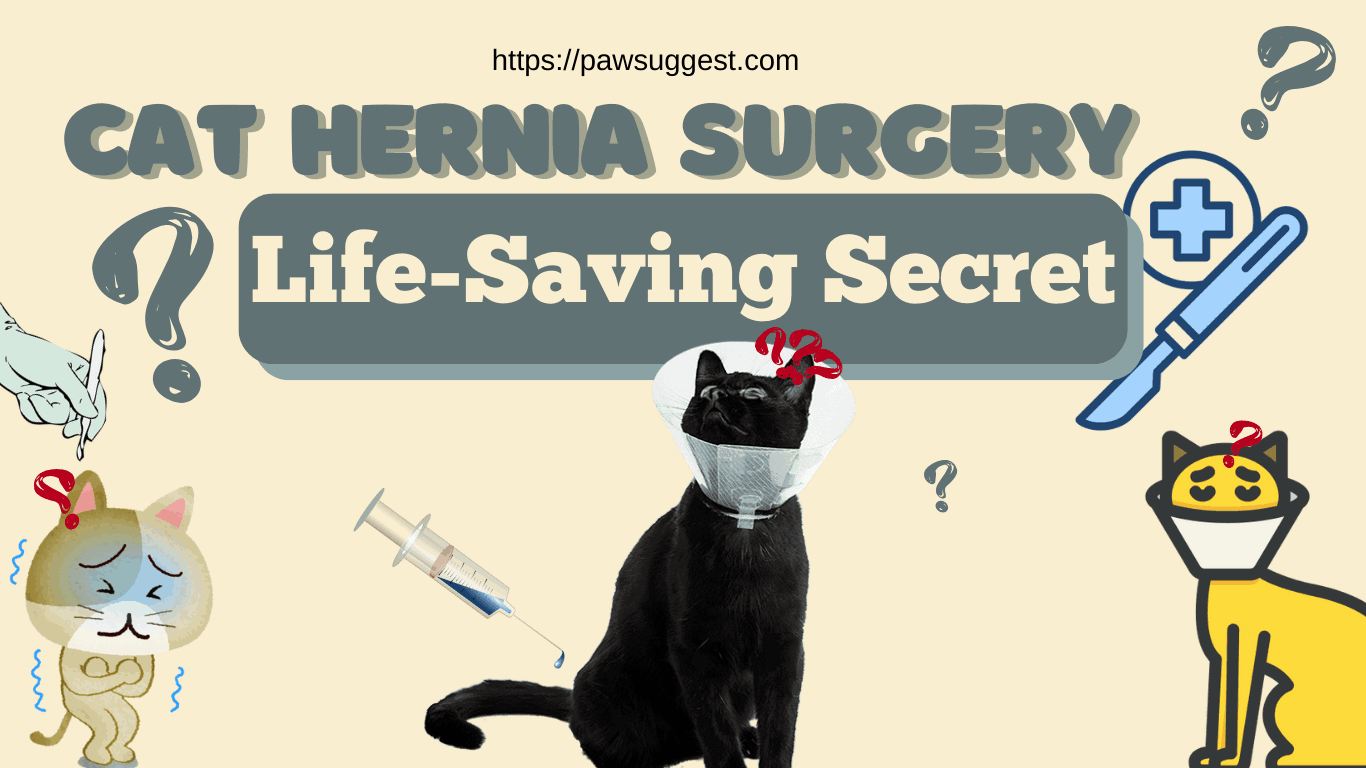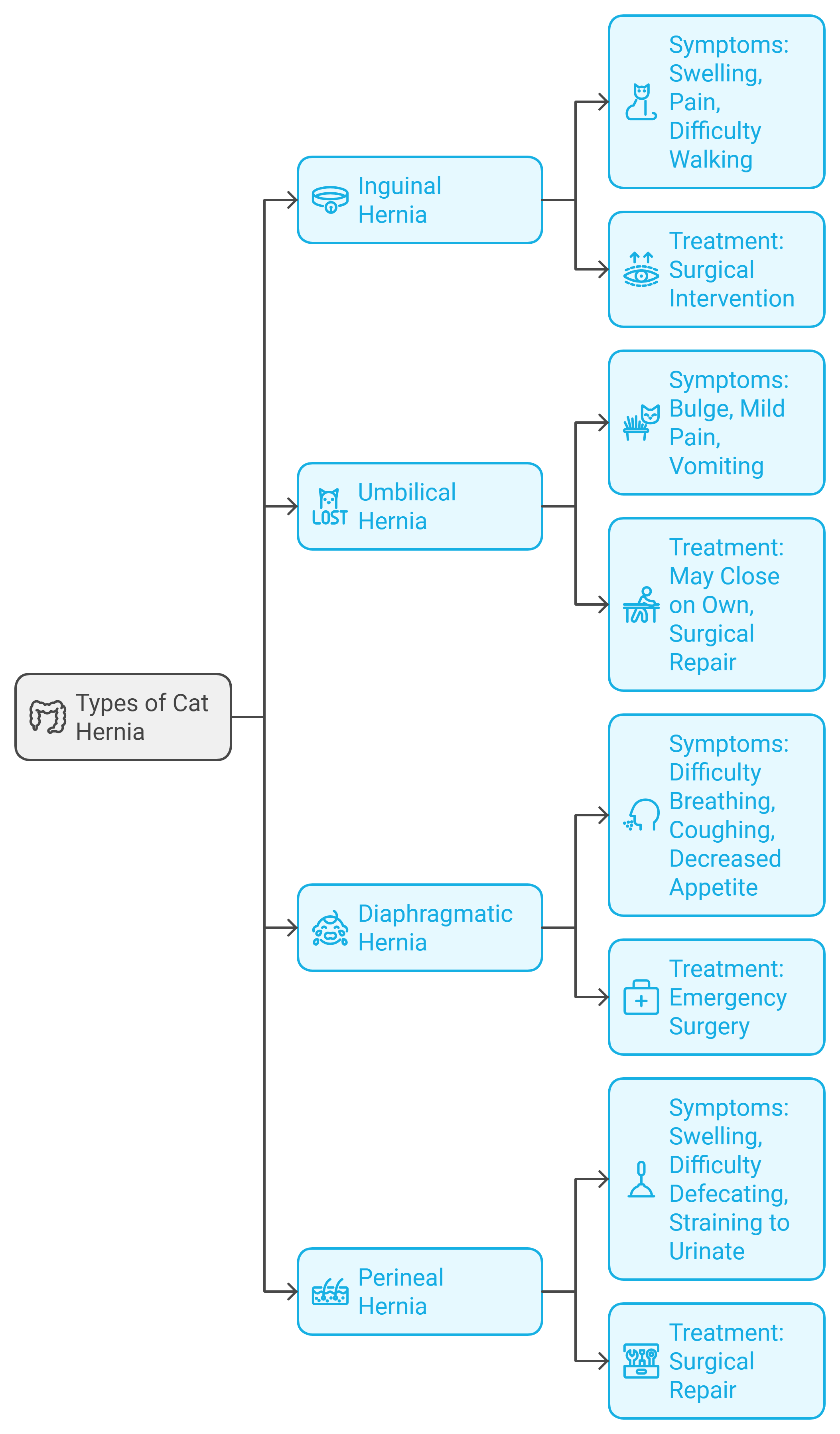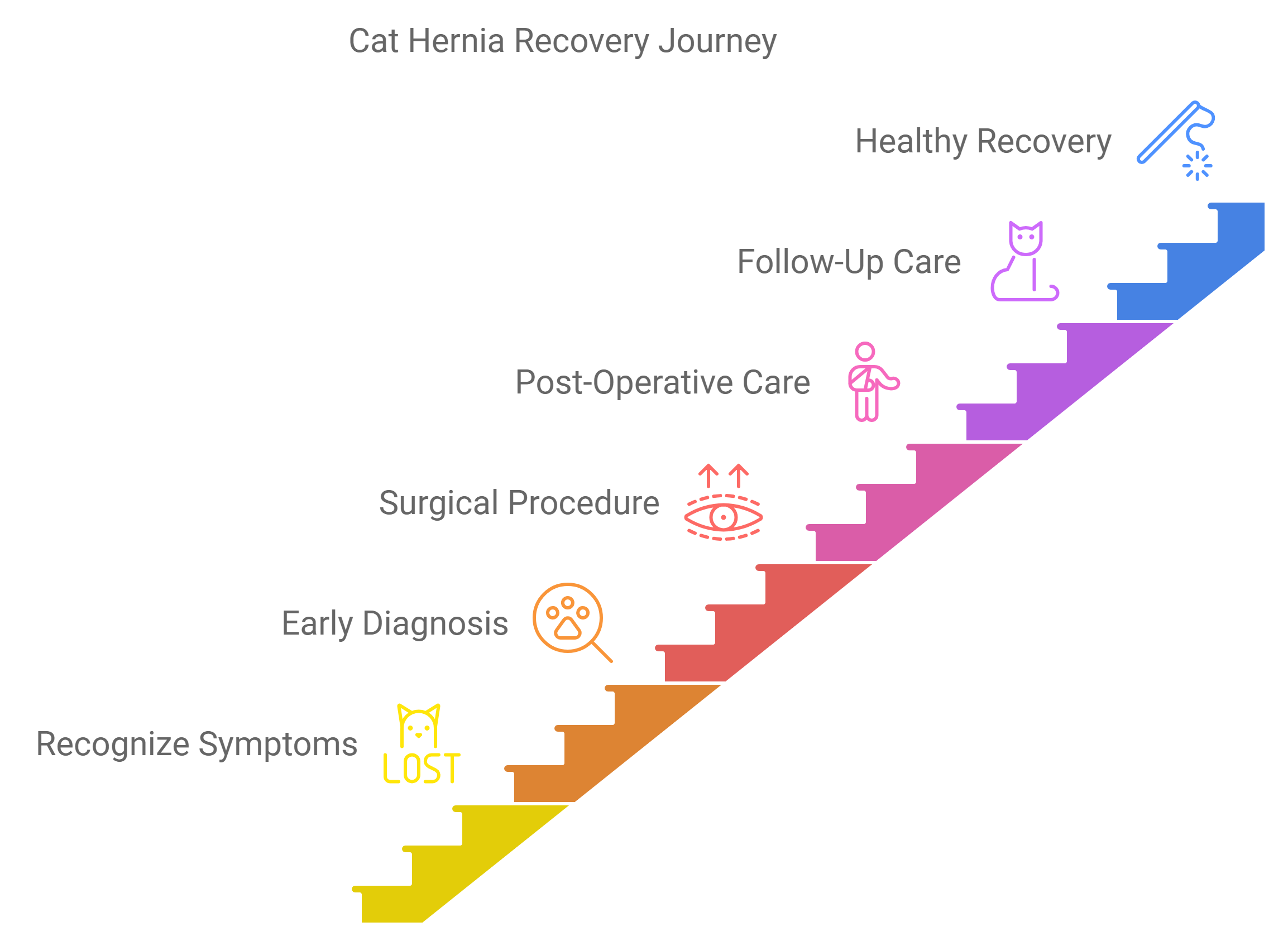Cat hernias are generally not life-threatening but often require surgery to be repaired. Early detection by vets is key. The types of hernias seen in cats vary, but with the right surgical process, the issue can be corrected efficiently.
Many vets provide insight into the cost, recovery, and types of cat hernias. Surgery is a common treatment, especially when detected early, making the condition straightforward to diagnose and treat. Knowing what to expect helps ease concerns about your cat’s hernia surgery and the recovery process.

Cat Hernia Surgery (Short Answer)
An Overview of Cat Hernia
Hernias in cats are uncommon but can occur due to congenital issues or cat’s injury or trauma. This happens when internal organs, intestines, or fat escape through weak muscle walls.
Other causes include bloating, pregnancy, or improper suture material after a spay operation. Keeping your feline calm and inactive helps prevent complications during recovery.
Ensure your cat stays indoors for 14 days after the procedure to minimize the risk of hernias caused by excessive activity.
Types of Cat Hernia
Hernias in cats are common and vary based on the types and their location in the body. Surgery is often required to correct these issues and prevent further health risks, especially if a fever in cats develops as a result.

Hiatal Hernia Surgery
A hiatal hernia is one of the rarest types. It happens when abdominal contents push through the diaphragm due to a birth defect. This “sliding” hernia may come and go, but it can make even the bravest cat a really scaredy cat if not treated promptly.
Inguinal Hernia Surgery
An inguinal hernia occurs when the intestines protrude through the inguinal canal. More common in pregnant females, this hernia affects the groin and can become dangerous if the muscle wall gets trapped, blocking blood flow and damaging tissue.
Umbilical Hernia Surgery
An umbilical hernia presents as a soft swelling or bulge under the skin near the ribcage. It often occurs in kittens, appearing as a squishy protrusion near the belly button when the kitten is meowing or crying. This condition is typically painless but may need surgery if it doesn’t heal on its own.
How is a Cat Hernia Treated through Surgery?

Hernia can be caused by abortion in cats. In that sort of case, surgery is usually the only solution. If your vet detects a hernia, they might be able to push the internal organs back through the muscle wall for it to heal. However, the risk of the hernia recurring is high.
If the hernia comes back, your vet might recommend fixing the muscle wall. This prevents complications like strangulation caused by small openings in the abdominal wall.
In some cases, the cats gag, a sign of blockage or infection. If the organs can’t be pushed back into the abdominal cavity, surgery is necessary to repair the hernia.
Pre-surgery tests include:
-
- Blood chemistry test
- Complete blood count
- Urinalysis
If the hernia repair is not urgent, other health conditions can be treated first. This is often done when the cat is neutered or spayed to minimize the need for extra anesthesia.
The night before surgery, your cat will need to fast, and fluids will be restricted. Intravenous anesthesia will put your cat into a deep sleep, with a tracheal tube maintaining the anesthesia using gas.
During surgery, the vet will use synthetic surgical mesh or existing muscle tissue to close the opening. Sutures will then be used to close the incision, allowing the muscle wall to heal properly.
Recovery Phase of Cat Hernia Surgery
During the recovery period after hernia surgery, your vet may prescribe antibiotics for cats to prevent infection and ensure smooth healing. It’s essential to use a protective collar to stop cats from licking or biting the incision areas, which could disturb the sutures.
- Cage rest may be required to limit movement, reducing the risk of suture rupturing.
- Pain medicines will be prescribed to keep your cat comfortable.
- Close monitoring can help detect early issues like infections or hemorrhaging.
Although surgical complications are rare, keeping an eye on your cat—especially in cats with small head—helps ensure any issues are detected and treated early. With proper care, hernia surgery is a straightforward procedure with a long-term solution, and complications are unlikely to recur.
How Much Does Cat Hernia Surgery Cost?
The cost of cat hernia surgery can vary based on several factors, such as where you live, the severity of your cat’s condition, and the fees charged by your vet. It’s important to understand that the size and general health of your cat also play a role in determining the final price.
- Veterinary care costs differ across the country, so asking for a written estimate from your vet is critical.
- Expect to pay for surgically repaired hernias based on the complexity of the case, and the differences in individual vet prices.
Bottom Line
Cat hernia surgery is generally a straightforward procedure that effectively addresses hernias, whether they are inguinal, hiatal, or umbilical. The surgery involves repairing the weak muscle walls that allow organs to protrude. Early detection is key to a successful outcome, and the surgery typically results in a permanent fix with minimal complications. With proper post-surgical care, including pain management and restricted activity, most cats recover fully and return to a healthy life.
FAQs
Can my cat live with a hernia?
Cats with a mild diaphragmatic hernia can often live for years without any clinical signs, but severe cases can be life-threatening if not addressed and treated immediately. Look out for symptoms like persistent cough, poor appetite, and being weak or lethargic.
Do all cat hernias need surgery?
Not all hernias in cats need surgery; uncomplicated hernias can often be pushed back into place and may not require surgical intervention. However, complicated hernias that involve trapped intestines or tissues do need immediate surgery to prevent serious issues.
How much does cat hernia surgery cost?
Hernia repairs in cats may be minor, costing pet owners $200-$500 (depending on various factors), including anesthetics but excluding any necessary pre-surgical lab work.
How long does cat hernia surgery take to heal?
After cat hernia surgery, the surgical site will need 1 to 2 weeks to heal, so your pet should wear an e-collar at all times to prevent licking the incision, which can cause infection and scarring.

